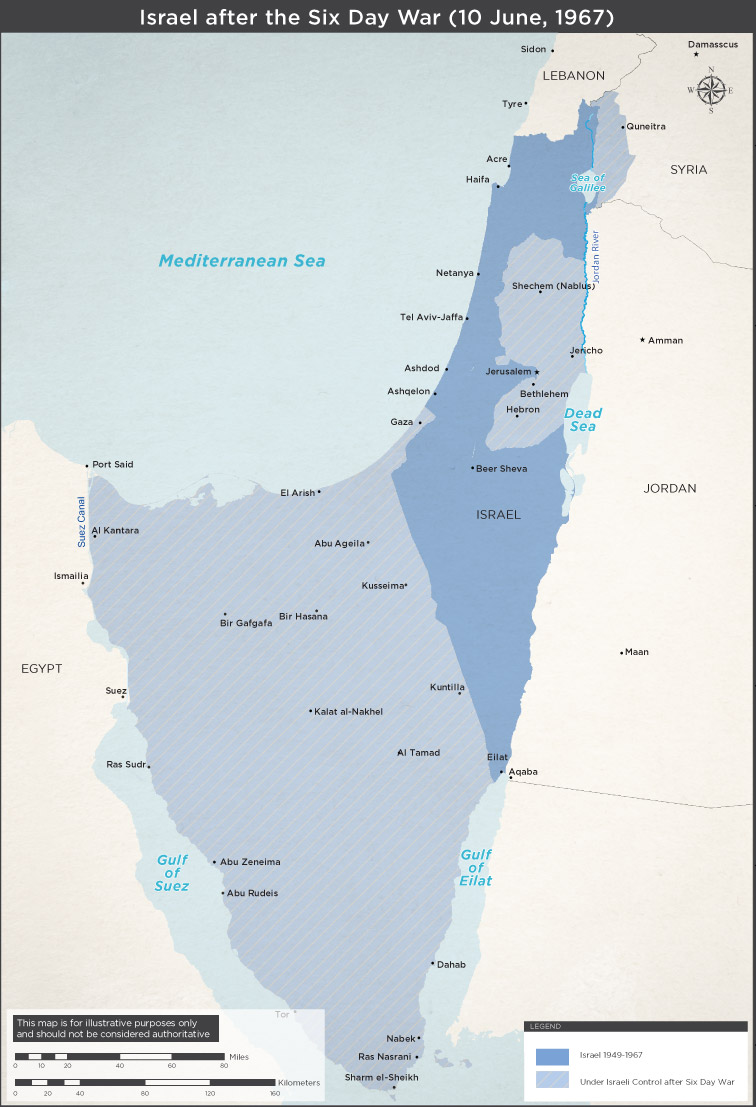
Good day Hivers and Book Clubbers,
Books can function as small time capsules: they tell a certain story in time, without knowing what the future will hold. They capture the moment, which can lead to very interesting retrospectives when read in the future. It's one of the reasons I like picking up older books. The book I'm going to discuss here surely qualifies as such a time capsule. It's titled 'Israel without Zionists: A plea for peace in the Middle-East' by Uri Avnery. Originally written in 1968, I got my hands on a Dutch copy dating from 1970.
As is clear from the title, I'm going to talk about an issue that is still very contentious to this day: the Israel-Palestine conflict. To be clear from the start: Avnery is not an independent observer. At the time (1967, that is) he was a politician, who sat as a one-man-party in the Knesset, the Israeli House of Representatives. His view is clearly pro-Israel, but not in a very typical way. But first, let's sketch the situation at the time.
The Six Day War
Avnery uses the first chapters in the book to sketch the beginnings of what would later become the Israeli state: waves of Jewish settlers, both Ashkenazim and Sephardic, came to what was then an Ottoman Turkish province, egged on by a new nationalist movement called Zionism. Zionism was 'invented' (not really the right word for it) and popularized by Theodore Herzl, who led the first Zionist congress in Basel, Switzerland in 1896. He saw the Jews as a nation/people without a state, and was of the opinion that to find a permanent place to settle would solve many issues that cropped up during the diaspora: mainly conflicts between Jews and non-Jews in countries were they resided.
Herzl left out any recommendation as to where this settlement should occur in his writings. Many Jews, however, felt a clear attraction to Palestine, the place where their far-flung ancestors used to live, and which is continuously mentioned in Torah and Talmud. One small issue, however: hundreds of thousands of Arabs already lived there.
According to Avnery, and I'd agree with his view here, Zionism and its proponents never formulated a working solution for this Arab presence. Jews then simply went to Palestine, formed their communal settlements (known as kibbutzim), and from there tried to ignore the Arabs as best they could. This would not last, however, especially since the amount of Jews steadily rose, and the amount of space didn't. Conflicts and wars arose between Jews and Arabs, and the Six Day War was the third major war between the groups.

(source)
As the name suggests, the war was a short affair. Israel, officialy founded as a state in 1948 after winning earlier conflicts, had a modern well-armed force. Though numerically outnumbered by the four Arab countries it faced (Egypt, Syria, Jordan, Iraq), it succeeded on the battlefield. The map above shows the remarkable progress it made: dark blue areas were the 1948 status quo, the grey areas were taken in the six days that the conflict lasted. In short, the areas taken were the Gaza Strip, the Golan Heights, the Sinai peninsula up to the Suez Canal, and the West Bank.
This is the point in which Avnery writes the main story: Israel came out of war victorious, yet it is in a political and diplomatic limbo. Diplomatically, the Arab countries are in an odd position: none of them officially recognizes Israel, so to open overt negotiations is to recognize the Israelis as a nation in the Middle-East. This they cannot do, and so there is no talking between Jews and Arabs.
Politically, there is the question of what to do with the territorial gains that were made. And as is usual in politics, no one really agrees with one another. Then, as now, there were proponents of Greater Israel: they wanted to annex all held territories. This did not happen, because many feared that the inclusion of the people living there (almost all Arab) would change the demographic make-up of the state.
As Zionism proposed from the beginning: it was all about creating a Jewish state. If Jews are not in the clear majority, is it still Jewish? It's a simple nationalist view, shared by many nationalists around the world. Full annexation would change the Jews into a minority, which they did not want. Some would argue for non-citizenship for the Arabs, akin to South-Africa pre-1994.
Avnery held none of these positions. As the title clearly implies, he was not a Zionist. His view was that the then-occupied Palestinian territories should be made into a Palestinian Republic, which should become a partner of Israel in a federation of equals. This would, in Avnery's view, integrate Israel into the Middle-East in turn, something it desperately needed at the time. Avnery criticized Israel for looking West all the time, and not paying enough attention to its neighbours. He wanted an end to the vicious cycle of war between Jews and Arabs, and the repatriation of Arab refugees back into Israel proper.
Aftermath
Avnery's wished and recommendations would go unheeded. Israels indecision regarding the held territories would be the direct reason for the Yom Kippur war in 1973. And though it technically won this war, the losses in terms of lives and materiel were very high. In the following peace negotiations, Israel would be recognized as a state by Egypt: the first Arab state to do so. In return, Israel returned the Sinai to Egypt and retreated from the Gaza Strip, East Bank and East Jerusalem. It stayed in the Golan Heights however; this is still disputed territory between Israel and Syria to this day.
Is there an end in sight to the Israel-Palestine issue? One tends to answer negatively. Both sides hold on tenaciously to what is theirs, and neither is really pleased by the status quo. Israel has many Western allies, while all its neighbours still favor Palestine. The deadlock, described by Avnery in 1970, seems eternal. Avnery lived to see most of the history up to today; he lived a long life and died aged 94 in 2018. Non-Zionist leftism is still a non-popular affair today, though Avnery kept to his same ideals until the end of his life.
I hate to leave it on such a sour note, but when talking about these types of contentious issues this can happen. If you want to weigh in on the issue, or have something to add in the form of question or corrections, feel free to do so. I'm not an expert on the issue, and some of the things mentioned in the books are also dated (for example, very few of the political parties then still exist in the same form). I'll be looking to do more non-fiction reviews in the future. Until the next one,
-Pieternijmeijer
(Top image source: book cover)